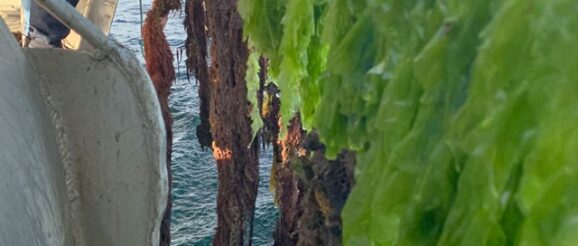Million-dollar Food Planet Prize awarded to CSIRO innovation – CSIRO

The Food Planet Prize recognises initiatives, organisations and individuals working to secure the world´s food supply while fostering a healthy and resilient biosphere.
Awarded by the Curt Bergfors Foundation, 2020 marks the launch of The Food Planet Prize; four awards, each including US $1 million, for efforts to reshape the food system.
To be impactful and to contribute to a sustainable and resilient food system, the solutions must be implementable reasonably fast and on a large, preferably global, scale.
Selected from a competitive field of over 650 nominations from all over the world, FutureFeed was awarded the prize for its benefits to the climate and environment, while also having the potential to improve profits and livelihoods by opening up a new global industry in seaweed farming.
When just a handful of the Asparagopsis seaweed is fed to cattle, it not only drastically reduces the greenhouse gas contribution from agriculture but there is also a strong indication it increases livestock productivity.
In August this year, CSIRO established the FutureFeed company to take the livestock feed to market with investment from AGP Sustainable Real Assets-Sparklabs Cultiv8 Joint Venture, GrainCorp, Harvest Road, Woolworths and CSIRO.
Dr Michael Battaglia, CSIRO scientist and Director of FutureFeed said the funds from the prestigious award will be used in two key areas to help meet the goal of delivering the world’s first ultralow-carbon beef and dairy by mid-2021.
“We plan to use part of the prize to establish a fund to enhance the participation of aboriginal and other first nations people around the world in Asparagopsis supply chains,” Dr Battaglia said.
“Already in Australia we have agreements between the Indigenous Land and Sea Corporation involving the Narrunga Nation Aboriginal peoples, and a seaweed growing company CH4 with the intent to develop commercial scale Asparagopsis cultivation and processing to generate maximum benefit for the Narrunga people.”
Dr Rob Kinley, Chief Scientist with FutureFeed said they would also use a portion of the prize to develop land based culture of seaweed in cold water regions where the seaweed can’t grow naturally.
“The remainder of the prize will be used to advance research and development on how best to deliver FutureFeed to livestock that graze freely in rangeland systems,” Dr Kinley said.
“Livestock produce up to 18 per cent of total greenhouse gas emissions, mainly in the form of methane,” explained Dr Kinley.
“We now have a solution that is a simple plug and play into existing feeding systems to reduce emissions and help farmers and producers create more food and build new and more sustainable businesses and enterprises.”
The 2020 Food Planet Prize Jury is comprised of world-leading scientists, policymakers and entrepreneurs. The Jury is chaired by Professor Johan Rockström, Director of the Potsdam Institute for Climate Impact Research and Line Gordon, Director of the Stockholm Resilience Centre at Stockholm University.
FutureFeed has been developed with Meat & Livestock Australia and James Cook University and subsequent collaboration at UC Davis and National Research Council of Canada with both dairy and feedlot animals.
